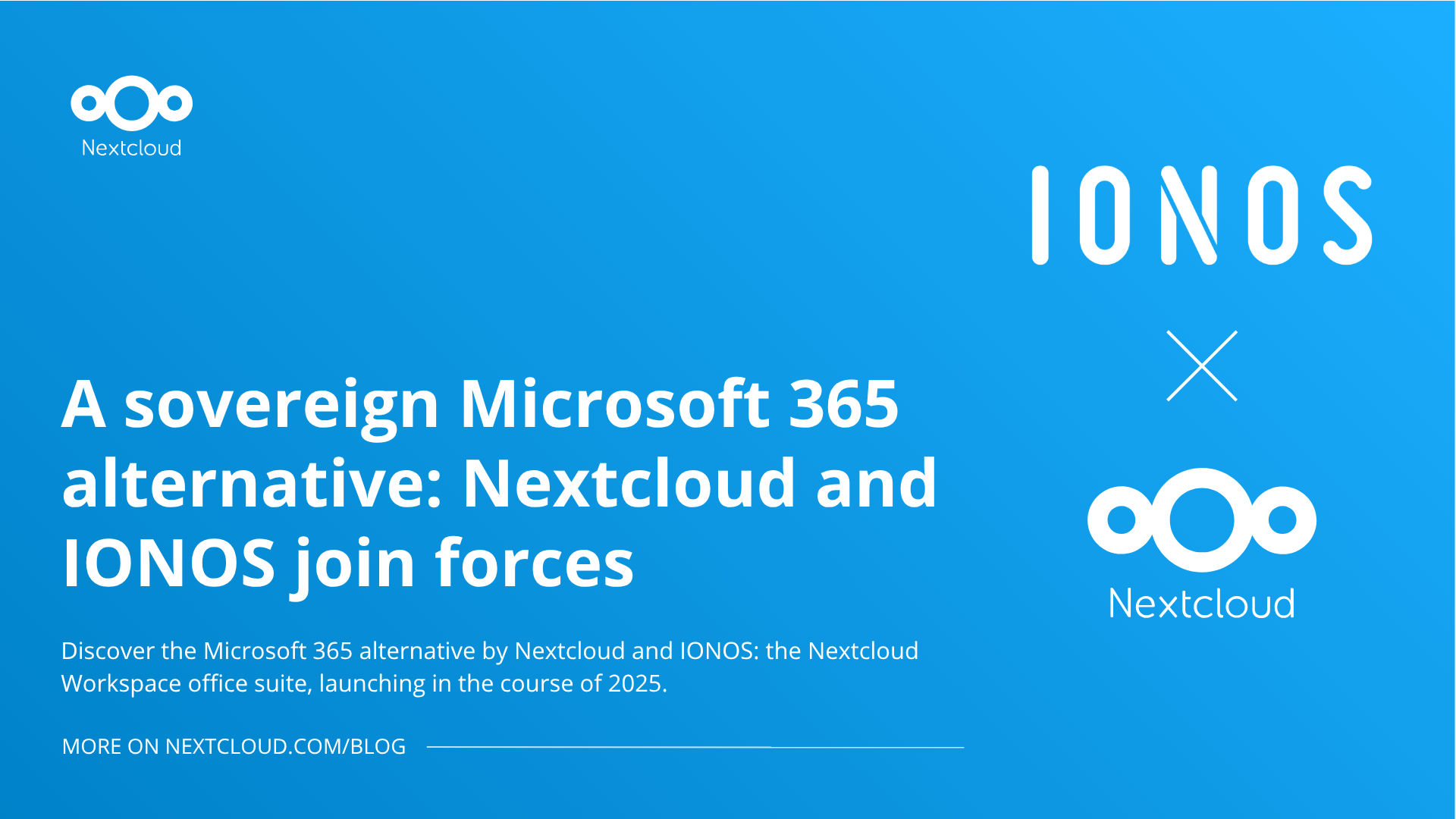As organizations are looking to reclaim their digital sovereignty, IONOS and Nextcloud are building the fully featured office suite “Nextcloud Workspace”: a powerful Microsoft 365 alternative. As long-standing partners, we have the expertise to enable large companies and organizations with an all-round office suite as European answer to US products. Announced at the Nextcloud Summit earlier this month, this collaboration for digitally sovereign office software that meets the highest data protection requirements will launch in 2025.
To meet the rigorous needs of public institutions and enterprises, Nextcloud Workspace will integrate a full range of collaboration tools, including file storage and sharing, document editing, email, calendaring, video conferencing, chat, and AI-powered productivity features. Of course, this offering will be fully GDPR compliant and securely hosted in Europe.
Organizations can trust Nextcloud to deliver a fully integrated office and collaboration suite, thanks to the company’s experience in creating the world’s leading private cloud platform. IONOS, Europe’s largest cloud and hosting provider, is the ideal partner to ensure full GDPR compliance and protection from US legal exposure. Hosting will be managed exclusively in Germany, at IONOS’ extensive network of data centers.



Trusting humans (to any extent) is quite vastly different than trusting corporations, to be honest. But if that’s your jingle, you can always do the work with a bulk tagger / gallery assembler. No AI, nor environment killing, needed.
I think they’re looking for local “AI” anyway. Since those work directly on your machine, there’s no concern around trust (nothing leaves your device) and the resource cost is whatever your hardware uses, or was already using.
There are some concerns still with local models, such as any biases in the training data that was used, but for image classification it wouldn’t be that bad.